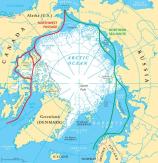
KARACHI, October 23 (AJP) - Canada’s decision to impose 100 percent tariffs on Chinese electric vehicles, with 25 percent tariffs on steel and aluminum to follow, reflects a critical moment in Sino-Canadian relations. From Beijing’s perspective, these measures are not merely economic sanctions - they represent a broader alignment of Canadian policies with those of the United States.
Historically, Canada had pursued a more diversified trade policy, leveraging China’s economic rise to reduce its reliance on U.S. markets. But recent actions indicate a significant shift. Ever since the U.S. scrapped NAFTA in favor of the USMCA, Canada has increasingly copied American policy, especially regarding China. These tariffs, echoing Washington’s protectionist stance, further solidify Canada’s dependency on U.S. policy directions, rather than forging an independent path in its dealings with China.
China’s Ministry of Commerce has called on the WTO to investigate, but the broader question remains - how long will Canada prioritize U.S. interests over its own strategic autonomy? For China, the Trudeau government’s actions are part of a larger geopolitical maneuver, one that risks not only trade relations but Canada’s broader global standing. In this increasingly multipolar world, can Canada afford to be seen as an extension of U.S. policy, particularly when it comes to a powerhouse like China?
Canada’s decision to align with the U.S. on tariffs against Chinese electric vehicles, under the urging of National Security Advisor Jake Sullivan, is a troubling signal for Beijing. While Canada's deep economic ties with the U.S. are undeniable, the speed with which Ottawa complied reveals a dangerous erosion of its autonomy in foreign policy. In a world where diversification is key to economic resilience, Canada's mirroring of Washington’s trade policy is particularly questionable. From China’s perspective, these tariffs - meant to "protect" Canadian manufacturers from supposedly unfair Chinese competition - are little more than a knee-jerk response to American pressure.
The tariffs, especially on electric vehicles, are not just economically unsound but strategically harmful. They expose Canada’s much smaller economy to retaliation, without the cushion of a diversified trade portfolio. Experts within Canada's own auto industry are already warning that these measures will backfire, leading to higher costs and diminished market access. Moreover, Canada’s embrace of the U.S. strategy of securitizing economic policy raises further concerns.
This practice, which frames trade disputes as national security issues, risks neither bolstering Canada’s security nor enhancing its economic prosperity. Instead, it locks Canada into a punitive approach that diminishes its bargaining power and complicates future diplomatic engagements. For China, the question is simple: why should we engage with a country that so readily follows another’s lead? Canada must reconsider if this path truly serves its long-term national interest.
Canada’s decision to impose heavy tariffs on Chinese electric vehicles reveals much about its shifting allegiances and the precarious balancing act it now faces. While its economic dependence on the U.S. cannot be easily severed, the eagerness with which Ottawa followed Washington’s lead raises eyebrows. From Beijing’s perspective, this move is as much about U.S. electoral politics as it is about trade. Beyond politics, Canada’s ambitions to foster its own electric vehicle industry appear misguided.
The notion of replicating industries within national borders is a relic of a bygone era. Since the Second World War, major industrialized nations - including China - have thrived by specializing in certain sectors, benefiting from economies of scale. Canada’s attempt to conjure up a homegrown EV industry from scratch, especially in the face of established giants like China, seems an uphill battle, if not outright folly. China’s dominance in electric vehicles is the result of years of patient, strategic investment - a competitive edge that other nations simply cannot replicate.
Canada, instead of attempting to challenge this supremacy, would be wiser to cultivate its own strengths in other high-tech industries. By trying to imitate China, Ottawa risks squandering its resources on a losing battle. If the Trudeau government truly aims to protect Canada’s industrial sector, it must reconsider its broader tariff strategy.
Plans to target products like solar cells, computer chips, and lithium-ion batteries will choke vital supply chains, drive up costs, and potentially lead to job losses - only deepening the country's industrial decline. From Beijing’s perspective, Canada’s move on EVs is not just a policy misstep, but a potential setback in the fight against climate change. Tariffs that make electric vehicles more expensive will only delay Canadians from replacing gas-powered cars, ultimately undermining global climate goals. For China, it’s clear: Canada’s economic and environmental strategies are heading down a perilous road.
Meanwhile, China has achieved something that deserves recognition. Through deliberate policies, it has raised the living standards of millions of workers and made strides toward environmental sustainability - both within its borders and through its global initiatives. In contrast, Canada’s newly imposed tariffs on Chinese electric vehicles seem to do little more than undermine its own interests. These tariffs won’t strengthen Canadian sovereignty, help its workforce, or revive its struggling industrial sector. If anything, they will push Canada further down the road of dependency and economic vulnerability.
Even more concerning, from China’s vantage point, is the impact these actions could have on the fight against climate change. By making electric vehicles less affordable, Canada risks stalling progress on one of the most urgent issues of our time.
-------------------------------------------------------------------------------------------------------------------------
This article was contributed by Dr. Imran Khalid, a freelance writer based in Karachi, Pakistan. He was qualified as a physician from Dow Medical University in Karachi in 1991, and has a master's degree in international relations from Karachi University.
Copyright ⓒ Aju Press All rights reserved.




